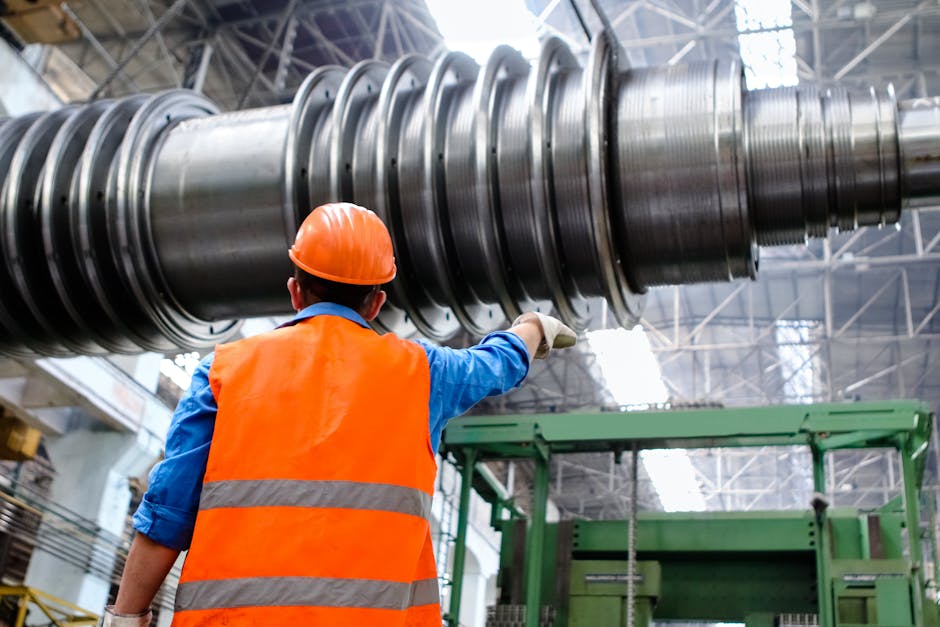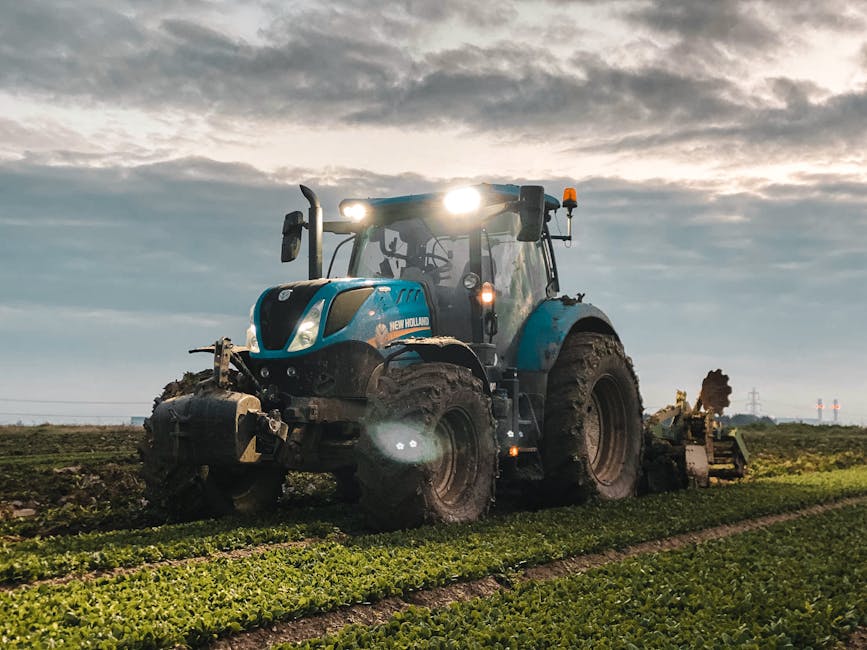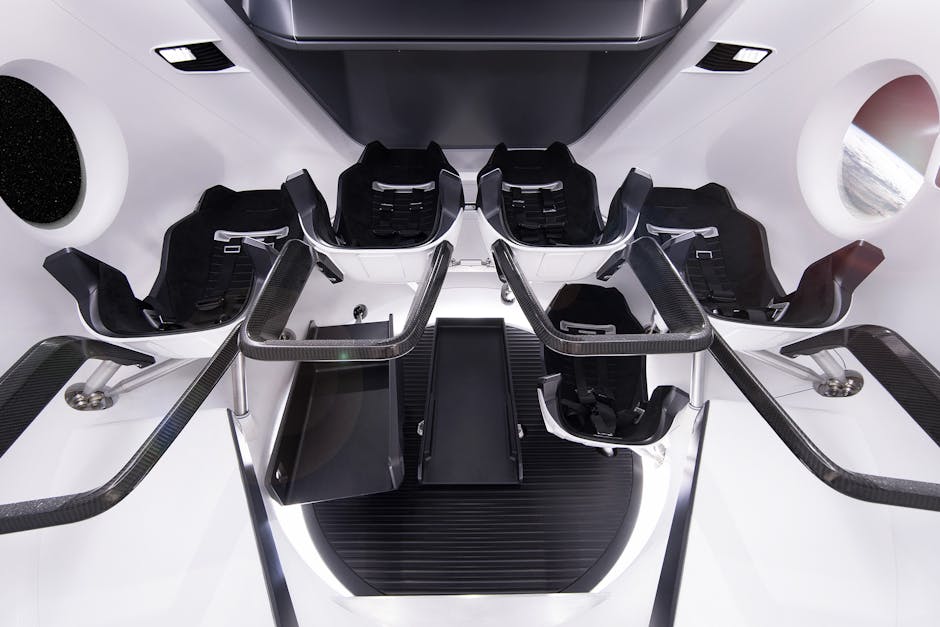Bristol’s Manufacturing Scene: Exploring the City’s Industrial Evolution
Bristol’s manufacturing sector has played a pivotal role in shaping the city’s industrial landscape. Over the years, it has undergone a significant evolution, driven by advancements in technology, changing market dynamics, and the influence of globalisation.
This exploration delves into the historical roots of Bristol’s industrial heritage, the transformation of manufacturing technologies, and the sector’s response to sustainability and innovation.
By examining the key sectors propelling Bristol’s industrial growth and the challenges it faces, this study aims to provide a comprehensive understanding of the city’s manufacturing scene. Moreover, it offers insights into the future trajectory of Bristol’s manufacturing sector, shedding light on the opportunities and prospects that lie ahead.
Key Takeaways
- Bristol’s strategic location and access to waterways played a significant role in its industrial development during the 18th and 19th centuries.
- Automation, digitalisation, and additive manufacturing techniques are driving Bristol’s manufacturing sector into a new era of competitiveness and sustainability.
- Globalisation and outsourcing have had a negative impact on Bristol’s manufacturing sector, leading to job losses and the need for strategic interventions.
- The key sectors driving Bristol’s industrial growth include advanced engineering and aerospace, renewable energy and environmental technology, and digital innovation and creative industries. These sectors prioritise innovation and sustainability.
Bristol’s Industrial Heritage

Bristol’s industrial heritage reflects a rich history of manufacturing and innovation. The city played a significant role in the industrial revolution, particularly in the 18th and 19th centuries. Its strategic location, with access to waterways and proximity to natural resources, made it an ideal hub for industrial development. The historical significance of Bristol’s industrial heritage is underscored by its contribution to the development of key industries such as shipbuilding, manufacturing, and engineering. The city’s docks were at the forefront of trade and commerce, serving as a gateway for goods and materials during the peak of the industrial revolution.
The industrial revolution brought about a transformation in Bristol’s economic landscape, propelling it into a leading position as a centre for innovation and production. The city’s industrial heritage is a testament to the ingenuity and entrepreneurial spirit of its inhabitants during this pivotal period in history. The remnants of this era, including historic factories, warehouses, and industrial sites, stand as a reminder of Bristol’s enduring legacy as a powerhouse of industrial innovation.
Evolution of Manufacturing Technologies

During the industrial revolution, advancements in manufacturing technologies revolutionised the production processes in Bristol, paving the way for unprecedented growth and innovation.
Today, Bristol’s manufacturing sector continues to evolve, driven by the latest technological advancements. Key evolutionary trends and technological advancements shaping Bristol’s manufacturing landscape include:
-
Automation and Robotics: The integration of advanced robotics and automation technologies has optimised production processes, improving efficiency and precision while reducing operational costs.
-
Digitalisation and Smart Manufacturing: Bristol’s manufacturers are embracing digital technologies and interconnected systems to enable real-time monitoring, predictive maintenance, and data-driven decision-making, enhancing overall productivity and quality control.
-
Additive Manufacturing: The adoption of 3D printing and additive manufacturing techniques has enabled rapid prototyping, customisation, and the production of complex geometries, fostering innovation and agility within Bristol’s manufacturing ecosystem.
These evolutionary trends and technological advancements are propelling Bristol’s manufacturing sector into a new era of competitiveness and sustainability.
As manufacturing processes continue to modernise, the impact of globalisation on Bristol’s manufacturing becomes increasingly significant, influencing supply chains, market dynamics, and industry collaborations.
Impact of Globalisation on Bristol’s Manufacturing

Globalisation has had a profound impact on Bristol’s manufacturing sector. This has led to trade and job loss as companies seek cost-effective solutions through outsourcing. The intense competition resulting from globalisation has forced local manufacturers to adapt to new market dynamics and innovate to remain competitive.
The changes brought about by globalisation have reshaped the city’s industrial landscape. This reflects the complex interplay between global economic forces and local manufacturing practises.
Trade and Job Loss
With the increasing interconnectedness of global markets, Bristol’s manufacturing sector has faced significant job losses due to the impact of globalisation. The trade impacts and job displacement have been profound, reshaping the city’s industrial landscape.
Key factors contributing to this trend include:
-
Increased Competition: Bristol’s manufacturers have encountered heightened competition from overseas companies, leading to a decline in market share and, consequently, job losses.
-
Outsourcing: Many Bristol-based companies have outsourced their production to countries with lower labour costs, resulting in layoffs and factory closures in the city.
-
Technological Advancements: Automation and technological advancements have led to the replacement of human labour, further reducing the number of available manufacturing jobs in Bristol.
This shift has not only altered the economic dynamics of the city but has also prompted a need for strategic interventions to revitalise Bristol’s manufacturing sector.
Outsourcing and Competition
Facing increased competition from overseas companies and grappling with the challenges of outsourcing, Bristol’s manufacturing sector has undergone significant transformations in response to the impact of globalisation.
The outsourcing challenges have forced local manufacturers to reassess their competitive strategies. Many have shifted focus towards high-value, specialised production, leveraging advanced technology and skilled labour to maintain a competitive edge.
Additionally, there has been a growing emphasis on collaboration and innovation, with manufacturers increasingly forming strategic partnerships to enhance productivity and diversify offerings.
Furthermore, the emphasis on sustainability and ethical practises has also emerged as a competitive strategy, appealing to conscientious consumers and distinguishing Bristol’s manufacturers in the global market.
These adaptations reflect the sector’s resilience and determination to thrive amidst the complexities of a globalised economy.
Key Sectors Driving Bristol’s Industrial Growth

Amidst Bristol’s industrial evolution, the key sectors driving its manufacturing growth can be attributed to advancements in technology and a robust focus on sustainable practises.
-
Advanced Engineering and Aerospace:Bristol has seen significant industrial diversity, particularly in advanced engineering and aerospace sectors, which have greatly contributed to the city’s economic impact. The presence of cutting-edge research and development facilities has attracted a skilled workforce and investment, fostering innovation and growth.
-
Renewable Energy and Environmental Technology:The city has made substantial strides in renewable energy and environmental technology, alining with global efforts to combat climate change. Bristol’s commitment to sustainable practises has not only reduced environmental impact but has also led to the emergence of new manufacturing opportunities and job creation within these sectors.
-
Digital Innovation and Creative Industries:Bristol’s digital innovation and creative industries have become integral to its industrial landscape. The convergence of technology and creativity has given rise to a thriving ecosystem of start-ups and established companies, driving the city’s manufacturing growth and solidifying its position as a hub for innovation and entrepreneurship.
These key sectors, characterised by innovation and sustainability, are propelling Bristol’s industrial growth, shaping its future as a dynamic and resilient manufacturing centre.
Innovations and Sustainability in Bristol’s Manufacturing

Bristol’s manufacturing sector has been at the forefront of embracing eco-friendly production methods, integrating cutting-edge manufacturing technology, and prioritising sustainable material sourcing.
These key points illustrate the city’s commitment to innovation and sustainability, positioning Bristol as a leader in environmentally conscious manufacturing practises.
Eco-Friendly Production Methods
In the realm of manufacturing, Bristol is embracing eco-friendly production methods to enhance sustainability and reduce environmental impact. Sustainable practises and green initiatives are at the forefront of Bristol’s manufacturing scene, driving innovation and promoting responsible resource usage.
The city’s manufacturing sector is incorporating eco-friendly production methods through:
-
Utilising renewable energy sources such as solar and wind power to reduce reliance on non-renewable resources.
-
Implementing waste reduction and recycling programmes to minimise the environmental footprint of manufacturing processes.
-
Embracing sustainable materials and production techniques to create products with lower environmental impact.
These initiatives not only benefit the environment but also contribute to a positive public image for Bristol’s manufacturing industry. As the city continues to prioritise eco-friendly production methods, it sets the stage for a more sustainable and responsible manufacturing landscape.
This commitment seamlessly transitions into the subsequent section about cutting-edge manufacturing technology.
Cutting-Edge Manufacturing Technology
Sustainable manufacturing practises in Bristol are being augmented by the integration of cutting-edge technology to enhance efficiency and reduce environmental impact. This integration involves the implementation of cutting-edge robotics and advanced materials innovation, both of which play a crucial role in streamlining manufacturing processes and minimising waste. The adoption of cutting-edge robotics allows for precise and automated manufacturing, leading to higher productivity and reduced energy consumption. Furthermore, advanced materials innovation enables the development of more durable and sustainable materials, contributing to a decrease in resource usage and waste production. The table below provides a visual representation of how these technological advancements are contributing to the sustainability and efficiency of manufacturing in Bristol.
| Technological Advancement | Impact on Manufacturing |
|---|---|
| Cutting-edge robotics | – Precision manufacturing |
- Automation for efficiency
- Reduced energy consumption || Advanced materials innovation | – Development of sustainable materials
- Decreased resource usage
- Minimisation of waste |
Sustainable Material Sourcing
The integration of cutting-edge technology in Bristol’s manufacturing sector has paved the way for significant advancements in sustainable material sourcing, contributing to the city’s commitment to environmental stewardship and resource efficiency. This commitment is evident through initiatives that prioritise sustainable sourcing and ethical practises.
Here are three key innovations driving sustainable material sourcing in Bristol’s manufacturing:
-
Local Sourcing: Manufacturers are increasingly prioritising sourcing raw materials from local suppliers, reducing the environmental impact of transportation and supporting the local economy.
-
Recycled Materials: Embracing the use of recycled materials in manufacturing processes, which not only reduces waste but also lessens the reliance on virgin resources.
-
Renewable Energy: Implementation of renewable energy sources to power manufacturing facilities, reducing carbon emissions and promoting sustainability.
These efforts showcase Bristol’s dedication to ethical and sustainable manufacturing practises.
Future Outlook for Bristol’s Manufacturing Sector

An optimistic outlook for Bristol’s manufacturing sector indicates a projected 5% annual growth in the next five years. This growth is expected to be driven by several key factors, including automation in manufacturing, workforce development, supply chain resilience, and post-pandemic recovery efforts. The integration of advanced technologies and automation in manufacturing processes is set to improve operational efficiency and productivity, leading to cost savings and enhanced competitiveness. To support these advancements, workforce development programmes will be crucial in upskilling employees to meet the demands of an increasingly digital and automated manufacturing environment. Additionally, the focus on building supply chain resilience in the aftermath of the pandemic will drive the adoption of agile and flexible manufacturing practises.
To provide a comprehensive overview, the table below highlights the key factors shaping the future outlook for Bristol’s manufacturing sector:
| Key Factors | Projected Impact |
|---|---|
| Automation in Manufacturing | Enhanced operational efficiency and cost savings |
| Workforce Development | Skilled workforce to meet the demands of automated manufacturing |
| Supply Chain Resilience | Adoption of agile and flexible manufacturing practises |
| Post Pandemic Recovery | Accelerated efforts to reinvigorate manufacturing activities |
This strategic approach is expected to propel Bristol’s manufacturing sector towards sustained growth and resilience in the coming years.
Frequently Asked Questions
How Does Bristol’s Manufacturing Scene Compare to Other Cities in the Uk?
Bristol’s manufacturing scene has unique characteristics compared to other UK cities. Its industrial growth is notable, with a focus on innovation and sustainability. The city’s diverse manufacturing sectors and strong partnerships contribute to its distinct position in the UK’s manufacturing landscape.
What Are the Primary Challenges Facing Bristol’s Manufacturing Sector Today?
Challenges facing Bristol’s manufacturing sector today include adapting to innovation, developing a skilled workforce, and enhancing supply chain resilience. Embracing technological advancements, investing in training, and fostering collaboration can address these challenges.
How Has the COVID-19 Pandemic Affected Bristol’s Manufacturing Industry?
The impact of the COVID-19 pandemic on Bristol’s manufacturing industry has been akin to a seismic shift. Supply chain disruptions and workforce adaptation have necessitated a robust recovery strategy to navigate these unprecedented challenges.
What Initiatives Are in Place to Support the Growth of Small and Medium-Sized Manufacturers in Bristol?
Government initiatives such as funding schemes and tax incentives are in place to support small and medium-sized manufacturers in Bristol. Business support programmes, innovation hubs, and export opportunities are also available to facilitate growth and expansion in the manufacturing sector.
How Does Bristol’s Manufacturing Sector Contribute to the City’s Overall Economy and Employment Opportunities?
Bristol’s manufacturing sector significantly impacts the city’s economy by generating jobs and fostering a robust supply chain. Its innovation strategies drive economic growth, creating employment opportunities and contributing to the overall prosperity of the city.
Conclusion
In conclusion, Bristol’s manufacturing sector reflects a rich industrial heritage, driven by evolving technologies and global influences.
The city’s key sectors continue to drive growth, with a focus on innovation and sustainability.
Looking ahead, Bristol’s manufacturing sector is poised to continue its evolution, embracing new opportunities and challenges on the horizon.
As the city builds on its industrial legacy, it remains a testament to the resilience and adaptability of the manufacturing industry.
Contact us to discuss our services now!
